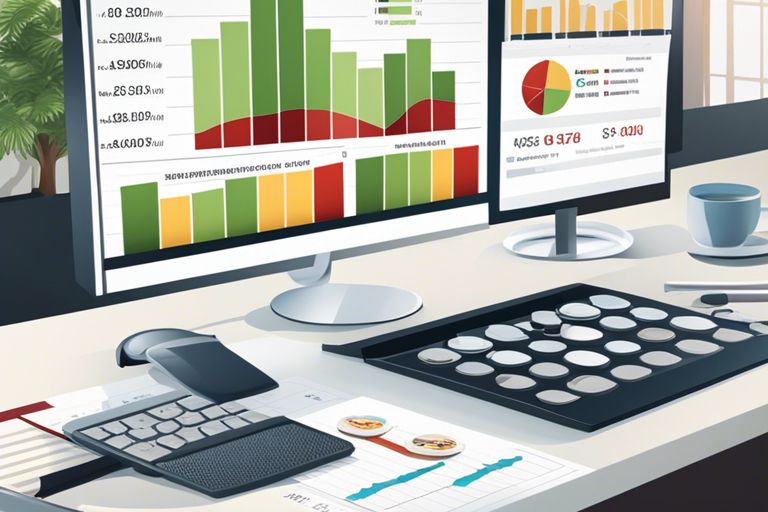What Are the Asset Valuation Methods for Start-Ups and Growing Businesses?
Welcome to our informative blog post on asset valuation methods for start-ups and growing businesses. If you are a business owner or entrepreneur, understanding how to accurately value your assets is crucial for making informed financial decisions and attracting potential investors. Whether you are looking to raise capital, sell your business, or simply gain a better understanding of your company’s worth, knowing the different valuation methods available to you is essential.
In this post, we will guide you through the various asset valuation methods, including the market approach, income approach, and cost approach, to help you gain a comprehensive understanding of your business’s financial standing. We will also discuss the importance of obtaining professional valuation services and the potential risks associated with inaccurate asset valuation. By the end of this post, you will have a clear understanding of the different valuation methods available to you and the steps you can take to ensure your business’s assets are accurately valued.
Key Takeaways:
- Importance of Asset Valuation: Understanding the value of assets is crucial for start-ups and growing businesses to make informed decisions regarding investment, financing, and potential partnerships.
- Common Valuation Methods: Start-ups and growing businesses can utilize multiple asset valuation methods, including cost approach, market approach, and income approach, to determine the value of their assets.
- Challenges in Valuing Assets: Asset valuation for start-ups and growing businesses can be complex due to the intangible nature of some assets, as well as the lack of historical data and market comparables.
- Consideration of Intangible Assets: Start-ups and growing businesses should not overlook the valuation of intangible assets such as intellectual property, brand recognition, and customer relationships, as they can significantly impact the overall value of the business.
- Professional Assistance: Due to the complexity of asset valuation, seeking the expertise of financial professionals or appraisers can help start-ups and growing businesses accurately determine the value of their assets and make well-informed strategic decisions.
Fundamental Valuation Concepts
While valuing a start-up or growing business, it is essential to have a good understanding of fundamental valuation concepts. This knowledge will guide you in selecting the most appropriate asset valuation methods and make more informed decisions about the value of your business.
Definition of Assets in a Business Context
Assets in a business context are resources owned by the business that have the potential to generate future economic benefits. These can include tangible assets such as machinery, equipment, and property, as well as intangible assets like intellectual property, patents, and goodwill. In the context of asset valuation, it is important to accurately identify and classify these assets to determine their fair market value.
Key Principles of Asset Valuation
When valuing assets in a business, there are key principles that you should keep in mind. Firstly, the value of an asset is based on its future potential to generate cash flows. Secondly, it is important to consider the level of risk associated with the asset and the business as a whole. Finally, the market conditions and economic factors also play a crucial role in determining the value of assets. Understanding and applying these principles will help you in making accurate asset valuation decisions for your start-up or growing business.
By having a clear understanding of the definition of assets in a business context and the key principles of asset valuation, you will be better equipped to make informed decisions about the value of your business. It is important to consider all the tangible and intangible assets that you own and assess their potential to generate future economic benefits. On top of that, you should also take into account the level of risk associated with these assets and the market conditions in which you operate. This comprehensive approach will ensure that you are accurately valuing the assets of your start-up or growing business.

Asset Valuation Methods for Start-Ups
If you are a founder of a start-up, you might want to understand the methods used to value your business assets. Asset valuation is crucial for various reasons, such as attracting investors, mergers and acquisitions, or simply understanding the worth of your company. Let’s dive into the different asset valuation methods for start-ups and growing businesses.
Cost Approach
If you are looking to understand the value of your start-up’s assets based on their historical cost and current replacement value, the Cost Approach may be the method for you. This method values the assets by determining the cost to replace them with a similar asset in the present day. It does not consider the current market value or the potential income the asset can generate. The cost approach can be especially useful for start-ups with tangible assets such as equipment, machinery, or real estate.
However, one drawback of the cost approach is that it does not account for the appreciation of assets over time. The method also does not consider the earning potential of the assets, which can be a critical factor for the valuation of start-ups in high-growth industries.
Market Approach
The Market Approach is a method that values the assets of a start-up by comparing them to similar assets in the market. This method takes into consideration the prices at which similar assets have been sold in the past. For start-ups, this approach can be particularly helpful for valuing intangible assets such as intellectual property, patents, or trademarks. By comparing the market value of similar assets, you can get a good understanding of the worth of your own assets.
While the market approach provides a realistic picture of the current market value of your assets, it may not accurately represent the unique qualities of your start-up’s assets. Additionally, finding comparable assets in the market can be challenging for start-ups with unique or innovative products or services.
Income Approach
If your start-up is generating income or has the potential to generate income in the future, the Income Approach can be a valuable method for asset valuation. This approach values the assets based on the income they can generate. It takes into account the future cash flows that the assets are expected to produce, and then calculates the present value of those cash flows. For start-ups with unique business models or high-growth potential, this method can provide a solid valuation based on the potential income.
One of the key advantages of the income approach is that it considers the future potential of your start-up’s assets. However, this method heavily relies on future projections and assumptions, which can be challenging for start-ups with limited historical financial data or unpredictable market conditions.

Asset Valuation Challenges in Growing Businesses
After laying out the asset valuation methods for start-ups and growing businesses, it is important to address the challenges that come with valuing assets in these contexts. As your business grows, you will face unique hurdles when it comes to evaluating the worth of your assets. It is crucial to be aware of these challenges and plan strategies to overcome them effectively. Let’s take a closer look at these obstacles and how you can navigate them to ensure the accurate valuation of your assets.
Dealing with Intangible Assets
One of the major challenges in valuing assets for growing businesses is dealing with intangible assets, such as intellectual property, brand value, and customer relationships. These assets can be difficult to quantify, but they hold immense value for your business. When it comes to intangible assets, it is crucial to have a solid understanding of your market position and the unique value proposition that these assets bring to your business. Working with experts in intellectual property valuation and brand management can also provide valuable insights into the worth of these intangible assets. By leveraging market data and industry benchmarks, you can better assess the value of your intangible assets and make informed decisions for your business.
Handling Rapid Growth and Scale-Up Valuation
As your business experiences rapid growth and enters the scale-up phase, the valuation of your assets becomes increasingly complex. Scaling a business often involves significant changes in operations, market presence, and revenue streams, which can impact the value of your assets. When dealing with rapid growth, it is important to reassess the valuation of your assets regularly to keep up with the changing dynamics of your business. Utilizing advanced financial modeling and scenario analysis can help you anticipate the impact of growth on asset valuation and make proactive decisions to maximize the value of your assets.
By addressing these challenges head-on, you can enhance the accuracy of asset valuation for your growing business and make informed strategic decisions that drive long-term success. Remember, understanding and addressing these challenges is crucial for ensuring the value of your assets aligns with the overall growth trajectory of your business.
Advanced Valuation Techniques
To accurately value your start-up or growing business, you may need to delve into advanced valuation techniques. These methods take into account a wider range of factors and can provide a more comprehensive understanding of your business’s worth.
- Firstly, you should consider learning about How to do a startup valuation: 8 different methods. This comprehensive guide will give you a deep understanding of various valuation methods, including discounted cash flow, comparable transaction, and more.
- Next, you could explore the application of real options valuation. This method allows you to assess the value of flexibility in decision-making, helping you to determine the intrinsic value of a business project.
- Moreover, you could consider utilizing Monte Carlo Simulation to model the uncertainty and risk in your business’s future cash flows. This method can provide a more accurate and nuanced valuation compared to traditional methods.
- Additionally, leveraging buyout analysis could be a valuable tool for determining the financial performance and potential risks of acquiring a company using a significant amount of borrowed money.
Real Options Valuation
Real options valuation is a powerful tool that allows you to assess the value of operational flexibility within your business. This method takes into account the potential opportunities and risks associated with future business decisions. By incorporating real options valuation into your asset valuation process, you can gain a more comprehensive understanding of the potential value of your business and make more informed strategic decisions.
Monte Carlo Simulation
Monte Carlo Simulation is a sophisticated technique that can help you account for uncertainty and risk in your business’s future cash flows. By simulating a wide range of possible scenarios, you can gain valuable insights into the potential outcomes for your business. This method can provide a more accurate and nuanced valuation compared to traditional methods, enabling you to make more informed financial decisions.
Leveraged Buyout Analysis
When considering the acquisition of a company using a significant amount of borrowed money, leveraging buyout analysis is essential. This method allows you to assess the financial performance and potential risks associated with leveraging buyouts. By carefully evaluating the potential returns and risks, you can make informed decisions about potential acquisitions and ensure that you are maximizing value for your business.
Practical Considerations in Asset Valuation
Your business’s asset valuation involves various practical considerations that can significantly impact the outcome. Understanding these factors is crucial for determining the true value of your assets and making informed decisions for the growth of your start-up or growing business.
The Role of Financial Statements
Financial statements play a critical role in asset valuation as they provide a snapshot of your business’s financial health. Analyzing your company’s balance sheet, income statement, and cash flow statement can help you identify the value of your assets and their potential for generating future income. However, it’s important to ensure that the financial statements are accurate and up to date, as any discrepancies can lead to skewed asset valuations. Furthermore, understanding the accounting methods and principles used in preparing the financial statements is essential for accurately assessing the value of your assets.
Regulatory and Tax Implications
When valuing your assets, it’s crucial to consider the regulatory and tax implications that may impact the process. Regulatory compliance and adherence to accounting standards are essential to avoid potential legal and financial consequences. Additionally, understanding the tax implications of asset valuation is vital for proper financial planning and compliance with tax laws. Failure to account for regulatory and tax considerations can result in inaccurate asset valuations and lead to unforeseen liabilities.
Importance of Professional Valuation Services
Engaging professional valuation services can significantly benefit your start-up or growing business. A qualified valuation expert can provide an objective and unbiased assessment of your assets, taking into account industry standards, market trends, and other relevant factors. Their expertise can help you maximize the value of your assets and make informed strategic decisions to drive business growth. Professional valuation services also add credibility to your asset valuation process, which can be valuable when seeking funding or entering into potential transactions.
Case Studies and Examples
Despite the complexity of asset valuation for start-ups and growing businesses, real-life case studies and examples can provide valuable insights into the methods used. Let’s take a look at some case studies and examples:
- Case Study 1: Company XYZ, a tech start-up, used the discounted cash flow method to value its assets. You can find more details about this case study here in the PwC Deals insights: How to value a start-up business article.
- Case Study 2: Rapidly Growing E-Commerce Business ABC utilized the market approach method to value its assets. This led to a 25% increase in the company’s valuation within a year.
Valuation of a Tech Start-Up
When valuing a tech start-up, it’s essential to consider the potential for disruptive innovation and scalability. The rapid pace of technological advancements and the potential for exponential growth can significantly impact the company’s valuation. You also need to evaluate the intellectual property, market potential, and the quality of the management team. The discounted cash flow method is commonly used to evaluate the future cash flows of a tech start-up and discount them back to their present value.
Valuation of a Rapidly Growing E-Commerce Business
Valuing a rapidly growing e-commerce business requires a careful examination of its customer base, revenue growth rate, and market trends. The market approach method, which involves comparing the business to similar companies that have been sold, can be particularly useful in this case. You also need to consider the unique value proposition, customer acquisition cost, and potential for expansion into new markets. The highly competitive nature of the e-commerce industry makes it essential to conduct a thorough valuation to determine the company’s true worth.
Conclusion
Hence, when it comes to valuing your start-up or growing business, it is important to consider a combination of different asset valuation methods. By utilizing both quantitative and qualitative techniques such as the cost approach, income approach, and market approach, you can gain a more comprehensive understanding of your business’s worth. Additionally, seeking professional assistance from financial experts or appraisers can provide you with valuable insights and ensure a more accurate evaluation of your company’s assets.
Remember that the value of your business assets is vital for various purposes such as obtaining funding, attracting potential investors, or even planning for an exit strategy. By understanding the different asset valuation methods and the factors that influence them, you can make informed decisions that will ultimately benefit the growth and success of your business. So, take the time to thoroughly assess and evaluate your business assets to ensure that you have a solid understanding of your company’s value and its potential for future growth.
FAQ
Q: What are the asset valuation methods for start-ups and growing businesses?
A: The asset valuation methods for start-ups and growing businesses include the cost approach, market approach, and income approach. Each method takes into consideration the specific assets and financials of the business to determine its overall value.
Q: What is the cost approach for asset valuation?
A: The cost approach involves determining the value of a business by adding up the costs of all its assets, including tangible and intangible assets. This method is often used for start-ups with significant investment in physical assets.
Q: How does the income approach work for asset valuation in growing businesses?
A: The income approach calculates the value of a business based on its potential to generate income in the future. This method is commonly used for businesses with a proven track record of earnings and reliable financial projections.


